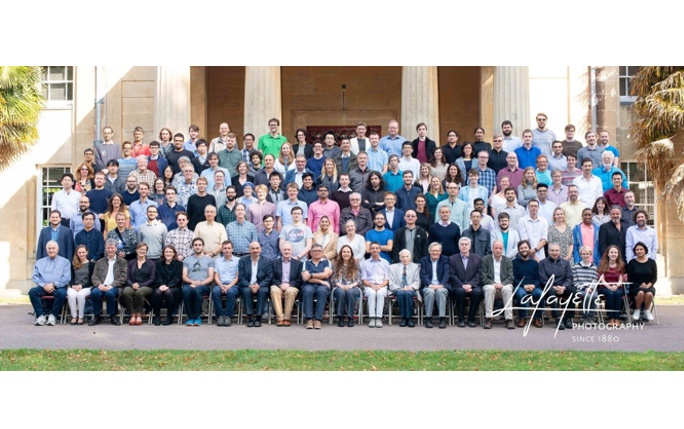Alberto Acuto presented at “Kavli Institute for Cosmology 10th year Symposium”

The KAVLI Institute for Cosmology (KICC) is an important centre that gathers the Cambridge Institute of Astronomy and several other physics departments in a collaborative environment that aims to encourage the interdisciplinary knowledge and application of different methods in ground-breaking research. The KAVLI Institute in 2019 reached the 10th anniversary after its foundation in 2009 and with this celebration they organized a symposium to discuss the most recent developments in cosmology and galaxy formation. The conference focused on several topics that were the most discussed in the last years with the new results from all-sky surveys (KiDS-450 weak lensing survey, BOSS galaxy correlation survey and PLANCK 2018 legacy release) and simulations (BAHAMAS, IllustrisTNG). A lot of discussions were addressed in the upcoming observatories and surveys results (i.e. the Simons Observatory, CMB-4, eROSITA).
The most discussed sessions were related to cosmic microwave background (CMB) cosmology and the results from the Planck legacy analysis (The Planck observatory was a huge space mission that gathered information about the origin of the Universe in the last 5 years: the “legacy” analysis is the latest results taking into account all of the previous data released.), large-scale structure surveys, new techniques in astrophysics (mainly dealing with large datasets with machine learning, Bayesian processes, emulation and multi-dimensional interpolation), galaxy formation, the origin of dark matter and how we can detect it.
An extremely interesting public talk given by Lord Martin Rees (KICC, Cambridge), Prof. David Spergel (Flatiron Institute) and Prof. Roger Blandford (Kavli Stanford). The topics were focused on the origin of the Universe, the extreme environment of super massive black holes and the fate of our Earth and Universe.
The LIV.DAT Student Alberto Acuto was asked to present a poster and give a flash talk to highlight the main points of his current research on “improving the halo model” (analytical methods to reproduce large scale structure tracers as the thermal Sunyaev-Zel’dovich or weak lensing cosmic shear) using the BAHAMAS simulations to calibrate the analytical functions.
He said: “The chance of presenting, even shortly, my work in front of so many recognized and influential scientists is a huge step for a PhD student and I felt like it was the right time to do it. I felt really satisfied by the reception and the discussions that I had with the other participants in the days after”.